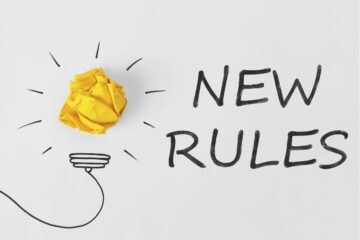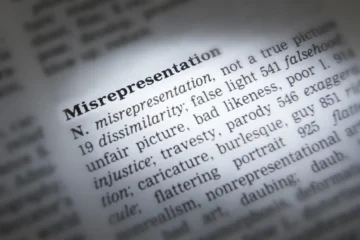Dealing with Debt.
Dealing with debt and the negative effect of debt is not always fully understood, yet debt is a product that is widely used. In cases when we spend more than we earn, we pay for the shortfall by borrowing money.
Although debt can be managed wisely, it often spirals out of control and can ruin its holders financially.
Debt is a deterrent to your financial freedom and must be adequately addressed before we move on to grow your capital. Some reason why individuals take on more debt than is healthy to include:
• Overconsumption;
• Social addictions;
• Materialism and greed;
• Pay now, pay later (opposite of delayed gratification);
• Unexpected financial shocks (ie loss of income); and
• Failing to manage our money.
However, some debt is necessary, particularly if we are starting our journey to financial independence. For this reason, it is important to distinguish between good debt and bad debt, as discussed in the following sections.
Good debt.
Good debt is difficult to access and has stringent criteria. This debt is acceptable as it can give you access to an asset of value, which in turn can earn you an income or provide utility. In addition, interest rates are often lower on this debt than on other forms of debt. An example of good debt is a home loan. If used correctly, this debt can help you buy an asset that appreciates over time
Bad debt.
Bad debt, on the other hand, is usually easy to access and has high-interest rates. It usually accumulates quickly, and even worse, can cause a debt spiral that is difficult to escape. Examples of bad debt include clothing accounts, furniture accounts, microloans, credit cards, and personal loans.
If you have bad debt it can be an overwhelming feeling. You need to address these debts and settle them as a priority. Only then can you look to start saving and investing, building wealth, and ultimately achieving financial freedom.
Concerning motor vehicles, you should remember that a car is a depreciating asset and not an investment. If you finance your car with a balloon payment, or if your monthly installment is more than 20% of your monthly salary, you may be buying a car that is too expensive for you. This could be classified as poor debt and it is crucial to consider the cost of debt.
Cost of credit.
Even though you might want to buy a new item, you should understand that buying it today means you have to pay more for it tomorrow. In this instance, you have to pay interest on the money you borrow.
It is always useful to ask yourself the following questions before swiping your credit card:
• Have I planned this purchase?
• Can I afford the monthly repayments?
• Do I know how much the interest will cost me over the repayment term?
• Do I really need this?
Dealing with Debt.
Now that you have a better understanding of your debt, consider the following guidelines on how to deal with your debt systematically,
Tackle the smallest debt first.
Pay your smallest debt first, the debt that will be the easiest to repay. In most cases, this would be a store card, credit card or overdraft. In addition, this tends to be the most expensive debt (highest interest rate). You will be saving on interest repayments by settling your smaller debts first.
As soon as you have paid off this debt, you use the money freed up to address your next debt. You will quickly gain momentum the faster the debts are paid off (snowball effect). You can target other debts, such as car repayments, once you have settled your short-term debts.
Cut up the credit cards.
There is no point in paying debt with the goal of freeing up credit lines just so that you can take on more debt. Cut up your cards or close the facilities once you have paid your debt.
Still save for emergencies.
It is important to pay off expensive, short-term debt, before saving. However, it is also important to create a safeguard against going back into debt.
For this reason, it is wise to build an emergency fund for when a financial crisis hits, like your washing machine breaking or your car needs an expensive repair job. In this instance, you will be able to use your emergency fund instead of going into debt.
Don’t miss payments
In some cases, individuals miss a credit card or even a car payment because they are trying to pay other debts first. This is not a good idea as it will be costly in terms of penalty interest, as well as a bad credit rating.
Selling your car.
One of the main reasons people are turned down for home loans is their over-commitment to car debt. If you face legal action, or you might lose your home due to car repayments that you cannot afford, then it is best to sell your car. You must be proactive and not hold on to your car for too long.
If the bank repossesses it, you will almost get nothing back. On the other hand, if you are proactive and sell your car privately, you may be able to repay a large amount of your debt and possibly reduce your payments.
Tell your creditors.
Your creditors may be understanding and agree to a payment plan if you tell them in advance that you are struggling to make payments. However, this strategy can backfire, and the bank may discuss a payment plan that you cannot afford, or even close all your available credit facilities.
Consolidate your debt.
It is a good solution to consolidate all your debt by taking out a single loan and using that loan to settle various other debts. In such a case you will only repay one loan and you can opt to have a longer repayment period to make the monthly repayments more affordable.
This method however only works if you are disciplined enough to avoid other credit.
Understanding debt and using your credit wisely will help you avoid unnecessary over-indebtedness. Speak to your financial adviser about how to manage your credit.
The National Debt Review Center can help you if you’re struggling to pay off your debt. Speak to us at info@ndrc.org.za. Alternatively, you can call us on 087 822 1249.



6 Comments
Sikhumbuzo Bongani Manukuza · January 4, 2021 at 8:57 pm
I will like to get help to settle my debt as I understand that I am over indebted and I did try to get a debt counsellor but they were no of help at all as I paid three consecutive instalments or reharb repayment fee but out of that there is nothing that was paid ro my creditors when I did the follow up they said that the two instalments I paid was for the lawyers and they promised ro send me the documents from court but none was ever sent to me up until now and a week ago I got the call from the lawyers of my creditors informing me that my account was handed over to them and they demanded a very high amount of money which is above the balance I remain with after all my deductions that I pay for which means I will not have money to provide for my kids and even to buy food just to feed myself so please help I need a reliable Debt counsellor tp help me urgently ro splve this problem before its too late
The National Debt Review Center · January 5, 2021 at 9:10 am
Good day Sikhumbuzo
Please complete this online form and a registered debt counsellor will be in touch with you to discuss further.
https://ndrc.org.za/apply-online/
Regards
Oscar · May 12, 2022 at 6:50 pm
Hi may you please help me out with my credits
The National Debt Review Center · May 23, 2022 at 10:54 am
Good day Oscar,
You will be contacted shortly.
Regards
Elvin Mccallum · February 5, 2021 at 9:57 am
Hi there i just want to know what can i do i was previously under debt review but that i cancel it and
they flag my name and I paid my own accounts can you give me some advice please